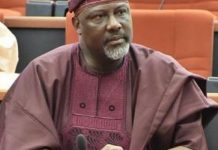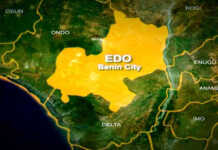The Chief of Army Staff, Lt. Gen. Taoreed Lagbaja, has restated that the military would not allow itself to be used by some interest groups to disrupt democratic governance in the country.
Lagbaja made this known on Tuesday, in his opening remarks at the 2024 Chief of Army Staff combined second and third quarters conference held in Uyo, the Akwa Ibom state capital.
He said that the Nigerian Army was still struggling to restore its integrity after many years of military rule and hence is not ready to lose its prestige built in the past 25 years of staying out of power.
Lagbaja described the recent nationwide #EndBadgovernanceInNigeria protest as an eye-opener.
He said, “Another pertinent issue that came up during the recent protest is the call for undemocratic intervention in governance by the Armed Forces of Nigeria.
READ MORE: LG Autonomy Will Solve Insecurity – COAS, Lagbaja
“Although one can say this was coming from young Nigerians who never experienced the era of Nigeria’s extensive military rule and the concerted struggle by heroes and heroines of our current democratic dispensation to get the Nation on its current path, as the Chief of Army Staff, my simple response to the call is, ‘Thanks, but no thanks!’
“The Nigerian Army will not allow itself to be used to undemocratically sail some interests to power.
“As the service that received the most image bashing as a fallout of previous military interventions in Nigeria, the Nigerian Army is not poised to lose the new prestige it has painstakingly built in the past 25 years, secure and united.”
“The Nigerian Army will, in the coming days, review its agricultural policy to better position the Nigerian Army Farms and Ranches Limited to significantly boost crop production so that the Army can release grains into the market at a highly subsidised rate in support of government efforts.
“Furthermore, the Army Headquarters is reviewing some proposals for partnerships with ministries, departments, and agencies of government and reputable private organisations on how best to collaborate to resolve food crisis in the country.”




